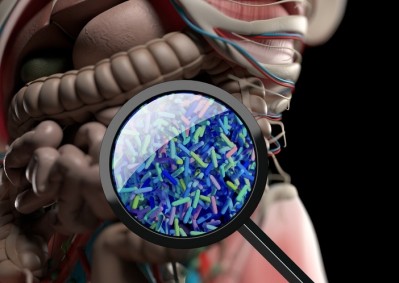New rat study highlights heart benefits of nutrient PQQ

“Mitochondria, as important organelles for maintaining heart function, provide energy for each heartbeat. Increasing evidence suggests that mitochondria are the power plant of the heart; however, like an old battery, the heart will eventually be depleted in patients with chronic heart failure,” according to newly published research.
Because pyrroloquinoline quinone (PQQ) is known as a potent antioxidant cofactor in the reduction oxidation process, it is widely distributed in animal and plant tissues and is an indispensable nutrient in mammals with PQQ deprivation affecting mitochondria and mitochondrial function in these species.
While PQQ contains some vitamin-like qualities, it is considered a nutrient. The enzyme booster offers certain anti-oxidative effects and is most commonly found in kiwi, green peppers, and parsley, with many getting their PQQ intake via supplements.
One of the most notable impacts of PQQ is on mitochondria. Mitochondria provide our cells with energy (ATP) and regulate cellular metabolism. Researchers have looked extensively at the impact PPQ has on mitochondria and have found that PQQ can increase the number of mitochondria and improve their efficiency.
Other purported PQQ health benefits include improved energy, enhanced memory and better sleep.
PQQ and heart health
In an effort to explore a new treatment for chronic heart failure, nutraceutical supplier and manufacturer Nascent Health Sciences recently partnered with the Department of Cardiology at an affiliated hospital of Nantong University in China to study the effects of PQQ on improving heart function.
Specifically, the study looked at the effects of PQQ on mitochondrial function in a cardiac pressure overload model and investigated whether PQQ improves cardiac function and helps to prevent chronic heart failure.
The study
To determine the effect of PQQ on chronic heart failure and systolic function in vivo, six-week old rats were subjected to sham or transaortic constriction (TAC) surgery for 12 weeks and administered a daily dose of 0.4, 2 or 10 mg/kg PQQ.
Results
After 12 weeks of TAC, rats showed significant ventricular and myocyte hypertrophy and increased heart weight/body weight ratios.
The authors also noted that the findings "Indicated that 2 and 10 mg/kg PQQ treatment had good therapeutic effects; however, compared with 2 mg/kg PQQ, 10 mg/kg PQQ showed no concentration-dependent effect, and 2 mg/kg PQQ was thus the best therapeutic dose among the three groups. In the following experiments, 2 mg/kg PQQ was administered to the TAC + PQQ treatment group.”
Highlights
- Pretreatment of PQQ improved pressure overload-induced cardiac remodeling and cell hypertrophy
- PQQ pretreatment also regulated Reductive Oxygen Species levels and increased mitochondrial membrane potential
- These factors can prevent mitochondrial dysfunction and thereby reduce cardiac damage caused by pressure overload
Based on these findings, the authors note that all factors combined may help prevent the occurrence of chronic heart failure.
“For the first time ever, the positive benefits of the powerful antioxidant PQQ on Myocardial Mitochondrial Dysfunction and CHF have been demonstrated,” said Thomas Schrier, Vice President of Sales at Nascent Health Sciences. “The researchers at Nantong University were specifically looking for treatment options to target mitochondrial function in the heart, and have now found conclusive evidence that PQQ’s ability to stimulate Mitochondrial Biogenesis can prevent cardiac damage and promote heart health.”
Source: Cardiovascular Diagnosis & Therapy
Home / Vol 10, No 3 (June 2020) doi: 10.21037/cdt-20-129
“Pyrroloquinoline quinone can prevent chronic heart failure by regulating mitochondrial function”
Authors: Q. Lu, et al.









